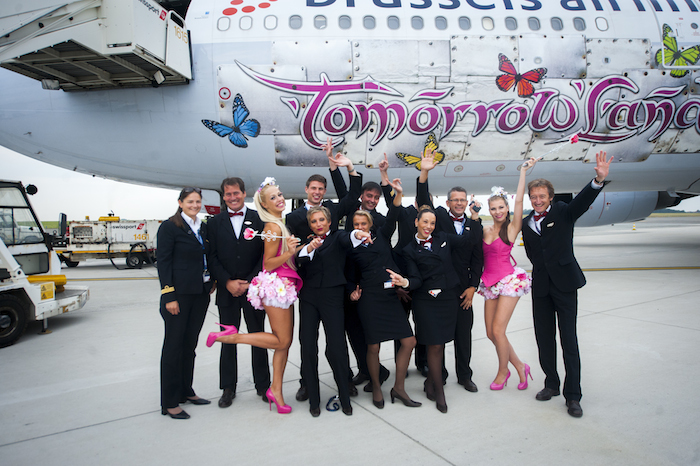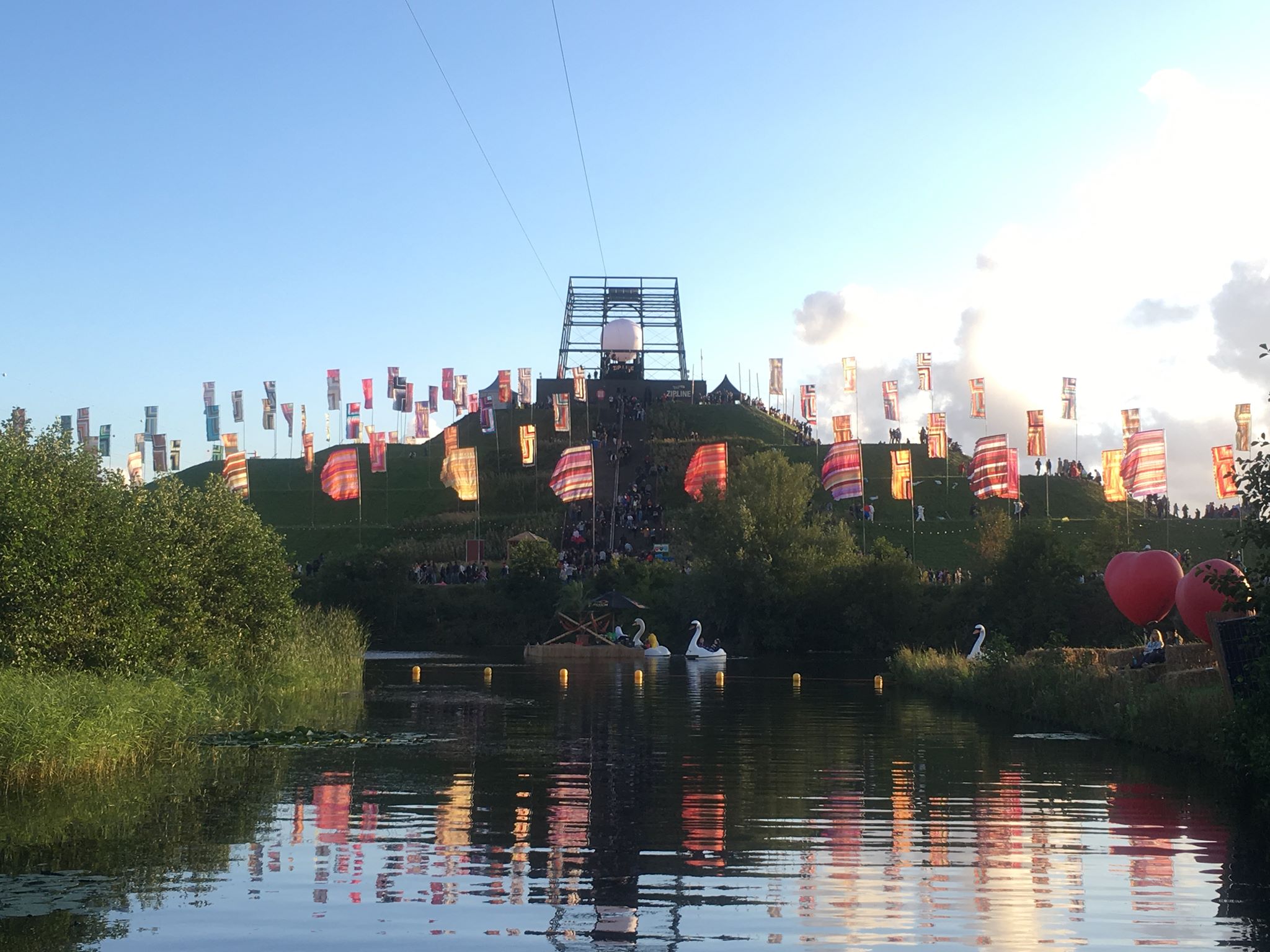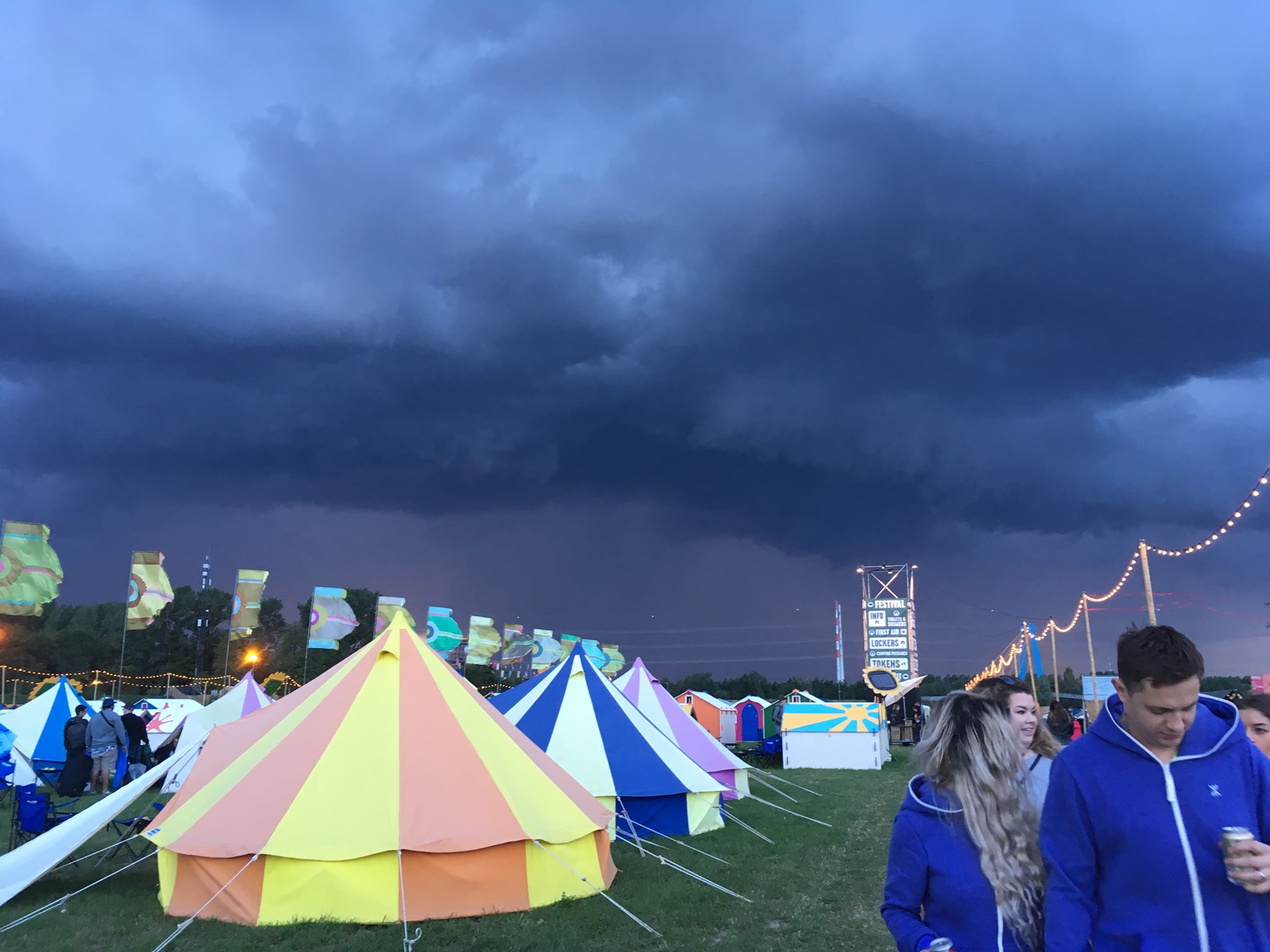
Music tourism
A closer look at why music festivals attract their audience
Music tourism is hot. With the rise of globalization at an accelerated speed in recent decades, tourism and the travel industry have seen a big expansion. With the emergence of budget airlines and cheap flight tickets, travelling stopped being an exclusive privilege and became an accessible hobby to a much wider population than before. Over the years, different types of tourism have come up, such as food tourism, dark tourism and sports tourism. For some, travelling became a lifestyle, such as for bloggers or Instagrammers whose careers depend on travelling. However, the trend that caught my interest the most is music tourism.
Music tourism has existed for a long time. People visited Bayreuth because of Wagner, Salzburg for Mozart and Sydney for its Opera House. Relating to much more recent artists, countless numbers of people travel to London to visit Abbey Road and take an iconic photo at the Beatles’ zebra crossing. These events may be seen as music tourism, where “people travel, at some part, because of music and the significance of this for culture, economics and identity” (Gibson & Connel, 2005).
Countless numbers of people travel to London to visit Abbey Road and take an iconic photo at the Beatles’ zebra crossing
If someone has travelled for a concert, even between nearby cities, they have been a part of music tourism. But an aspect of music tourism that is the most interesting to me is festival travel. I believe that this is the biggest phenomenon for electronic music festivals, or festivals that combine different genres of music.
Music tourism and festivalization
To begin with, I believe it is important to define festivals and their origins to be able to understand this phenomenon in today’s world. The development of festivals and their impact on culture and their surrounding space, known as ‘festivalization’ is not a new phenomenon (Cudny, 2016). It relates to the development of human culture, from the beginning of humanity (Klein & Blake, 2002).
Some of the first records of festivals date back to ancient Greece (Dionysia) or Rome (Saturnalia) or the medieval carnivals and have usually been connected to religious beliefs. Festivals can be defined as cultural events and unique moments in time, celebrated with ceremony and ritual to satisfy certain needs (Golblatt, 1990). Culture-related meanings of the term ‘event’ include gathering or social activity, something that happens at a given place and time, competition, adventure and occasion (Tara-Lunga, 2012).
The importance of cultural phenomena as products or services was appreciated by many, and as a result, culture became a valuable economic component (Cudny, 2016). The growing economic importance of culture started to be referred to as cultural economy (Scott, 2010).
Nowadays, many festivals are not connected to a specific place or community; they are held at different locations and refer to global culture. In this sense, they do not refer to specific nationalities or social groups sharing the same values, language or history. A particularly important element is the factor of the experience, which generates demand for festivals. They enable people to get away from their everyday routine, leave the everyday ordinary social roles and move to the world of hedonistic fun (Cudny, 2016).
A global economy
The Netherlands have a vast array of music festivals on offer with electronic music festivals dominating the market; from EDM, through techno and hardstyle, but also pop music, rock and jazz. Each year, many of those festivals attract thousands of visitors from all over the world. The diversity can be seen by looking at the flags that visitors bring with them to the festivals to represent their countries, for example. Some DJs even make a ‘flag moment’ a part of their show, where they take a photo with or of the audience showing their flags (shown in the cover photo). As DrifterPlanet says, and I agree with this, festivals are places where people come to escape the “real world” (Drifter Planet, 2016). Everyone is their best self and is happy. It’s a place to celebrate life.
Festivals are places where people come to escape the “real world"
As mentioned before, these cultural events became part of global economy. Thanks to globalization travel companies and organizers are in the position to take an advantage of the music tourism trend. In the Netherlands there are many bus companies offering travel to festivals from different cities in the country, for example.
Some festivals attract specific nationalities. For example, Qlimax in Arnhem, attracts a lot of Germans, and therefore, many coach companies offer organised trips to and from the event from all over Germany. Some festivals take advantage of the trend by extending their service with organised flights in special, branded planes.
Tomorrowland, a festival held in Boom, Belgium does that. They even expanded their service offering not only transport to the festival in these special planes, but also offering a trip across Europe before or after the festival.
Brussels Airlines Tomorrowland Flight

Why do people travel for music?
Music tourism provides a rationale for travel and can be the primary motivation for traveling to a destination to experience a festival (Connel & Gibson, 2003). According to Schwartz and Fouts (2003), the most appreciated parts of festivals are the music entertainment qualities and according to Holobrook (1995), the musical experience of witnessing a live performance is superior to just listening to a record at home. Christian (2010) found that, interaction with friends, like dancing, while listening to live music is one of the most enjoyed aspects of festivals.
According to TravelWeekly, ‘music is arguably the best tool to bring people together'. If you get it right, music tourism is a way to engage locals and visitors in new experiences. And according to Baran (2017), people like to be a part of a group or something bigger and therefore gathering together at a music festival acts on our primal need of belonging. Travellers often extend their stay in a place where a music festival takes place, to explore the city or its area. This can be seen as wanting to experience local culture. What can also be noticed is that the locals are friendlier and more welcoming (Daly, 2015).
Companies who offer extended services that facilitate local travel around the festival can be considered as very smart commercially in taking advantage of this trend. “People will travel to an event and wrap their vacation around it. It is about the rise of experiential travel, and giving your clients the end-to-end experience.” (D'Ambrosio, 2017)
Some companies are very smart about welcoming music tourists, which does not always benefit the traveller. A small city in Poland, Plock, organizes three major festivals, for example. As the city is small and only offers a few hotels, accommodation during those music festivals becomes scarce and problematic. Those hotels triple their room prices only for the duration of the festivals. Even though the prices are ridiculously high, they sell out very quickly. In the case of Plock, tourists have no choice regarding where to stay and must choose one of the expensive hotels.
At music festivals you're bound to meet new people and some of them will become friends for life
Other sources mention that needing to travel to their destination is beneficial for festivalgoers, because this expands their cultural experience and they get to see more of the world (Drifter Planet, 2016). Some places would probably never even make it onto someone’s travel bucket list if not for a festival. So, in a way, traveling for music is also travelling for new places.
Decor at Mysteryland 2018

However, cultural experience is also the central perk of the music festivals themselves. Festivals are beautiful! From decor to performing artists, festivals offer a lot of food for the eyes. Many festivals hire some of the best designers to create a visually stimulating environment to boost the overall experience (Drifter Planet, 2016). At music festivals, you're bound to meet new people and some of them will become friends for life. After all, you end up spending many hours and sometimes even days with them. It’s a good place to meet people from different ages, countries, and cultures.
Kruger and Saayman (2015) have conducted a research on motives for going to live shows of Gen Y'ers in South Africa. Their research found five main motives: escape (experience new things, a chance to be with people who are enjoying themselves, nostalgic reasons, relax and escape from daily tension), artist affiliation and unique experience (always wanted to see the artist perform live, once-in-a-lifetime experience, to see favourite artist, the artist is a well-known act, concert is value for money), event novelty (wanting to see the artist again, social status in terms of being seen by others, possibility to meet the artist in person, attendance makes one part of the performances, concerts enable the visitor to physically get close to the artist), socialization (it’s a sociable event, to spend time with friends, got tickets for free/as a gift), entertainment (concerts are entertainment at its best, enjoy this type of special events, enjoy the music, attending as many events as possible).
When is your next music festival?
This research corresponds with other opinions online that have been mentioned before. Moreover, from my personal experience, I can relate with most of these motives. Even though I have not travelled to another country to attend a festival, I have visited many in the Netherlands, Luxembourg and Poland, where I come from.
My first motivation to go to a music festival is usually to see a specific artist. I also genuinely enjoy being on festival grounds, I can relate to the escape from everyday reality factor very much. Being in a place where everybody comes to enjoy themselves, without judgement makes me enjoy the freedom, as romanticised as it sounds. I also value the socialization aspect of music festivals. Going there with friends and embracing our common passion for music, but also easily meeting many new people is a fun aspect. In my experience, spending time with friends in this way enhances the friendship and closeness. Whenever I attend a music festival, it is always a great time, no matter the weather.
Mysteryland 2018 Bad Weather

I think that most of the festivalgoers can recognise themselves in the described motivations and music festivals play an important role in their lives. Attending live music performances have some benefits as well, such as satisfaction of curiosity, experience of joy and entertainment, social interaction and the chance to get physically close to famous and cherished artists (Earl, 2001).
Festivals have existed in human society since its begining, and have evolved from religious or ritual celebrations to mass popular culture events. In the 21st century, music festivals are hitting their popularity peak and keep on growing to be must-see points on cultural bucket lists. With all the reasons listed above and all the experiences of various people mentioned, it is now easier to understand why people would go out of their way and travel - sometimes between continents - to witness a music performance. All the motivations that were described, all the feelings people have towards music, together with globalization advancements, such as affordable travelling options and social media, justify the music tourism trend very well.
Whether you're looking to see your favorite artist in a live performance, to spend a fun weekend with your friends, are looking for reasons to travel or just want to escape your everyday life, music festivals can satisfy your needs. Millions of people worldwide visit music festivals, with numbers of visitors growing each year. So, when will you make your way to the next music festival?
References
Baran, M. (2017, September 4). Music tourism has potential, but industry must pick up the tempo. Retrieved on November 14, 2018.
Christian, S. (2010). Comparing Generations. ESSAI, 22-28. Retrieved on November 14, 2018
Connel, J., & Gibson, C. (2003). Sound Tracks: Popular Music, Identity and Place. London: Routledge. Retrieved on November 14, 2018
Cudny, W. (2016). Festivalisation of Urban Spaces: Factors, Processes and Effects. Lodz: Springer. Retrieved on November 14, 2018
Daly, A. (2015, May 15). Will Travel for Music: Crazy Lengths People Go to See Their Favorite Bands. Retrieved on November 14, 2018, from Yahoo Lifestyle:.
D'Ambrosio, R. (2017, April 13). Music Festivals Are A Ticket To Travel Agent Profits. Retrieved on November 14, 2018, from Travel Market Report.
Drifter Planet. (2016, September 14). Why We Love Music Festivals. Retrieved on November 14, 2018, from DrifterPlanet: https://drifterplanet.com/why-we-love-music-festivals/
Gibson, C., & Connel, J. (2005). Music and Tourism: On the Road Again. Clevedon: Channel View. Retrieved on November 14, 2018
Golblatt, J. (1990). Special Events: The Art and Science of Celebration. Van Nostrand Reinhold. Retrieved on November 14, 2018
Holobrook, M. (1995). Consumer Research: Introspective Essays on the Study of Consumption. Thousand Oaks: Sage. Retrieved on November 14, 2018
Klein, & Blake. (2002). The Dawn of Human Culture. Wiley. Retrieved on November 14, 2018
Kruger, M., & Saayman, M. (2015). Consumer preferences of Generation Y: Evidence from live music tourism event performances in South Africa. Journal of Vacation Marketing, 366-382. Retrieved on November 17, 2018
Schwartz, K., & Fouts, G. (2003). Music Preferences, Personality Style and Development of Issuies of Adolescents. Journal of Youth and Adolescence, 205-213. Retrieved on November 14, 2018
Scott, A. (2010). Cultural economy and the creative field of the city. Geografiska Annaler, 115-130. Retrieved on November 14, 2018
Tara-Lunga. (2012). Major Special Events: An Interpretative Literature Review. Management&Marketing, 761-762. Retrieved on November 14, 2018